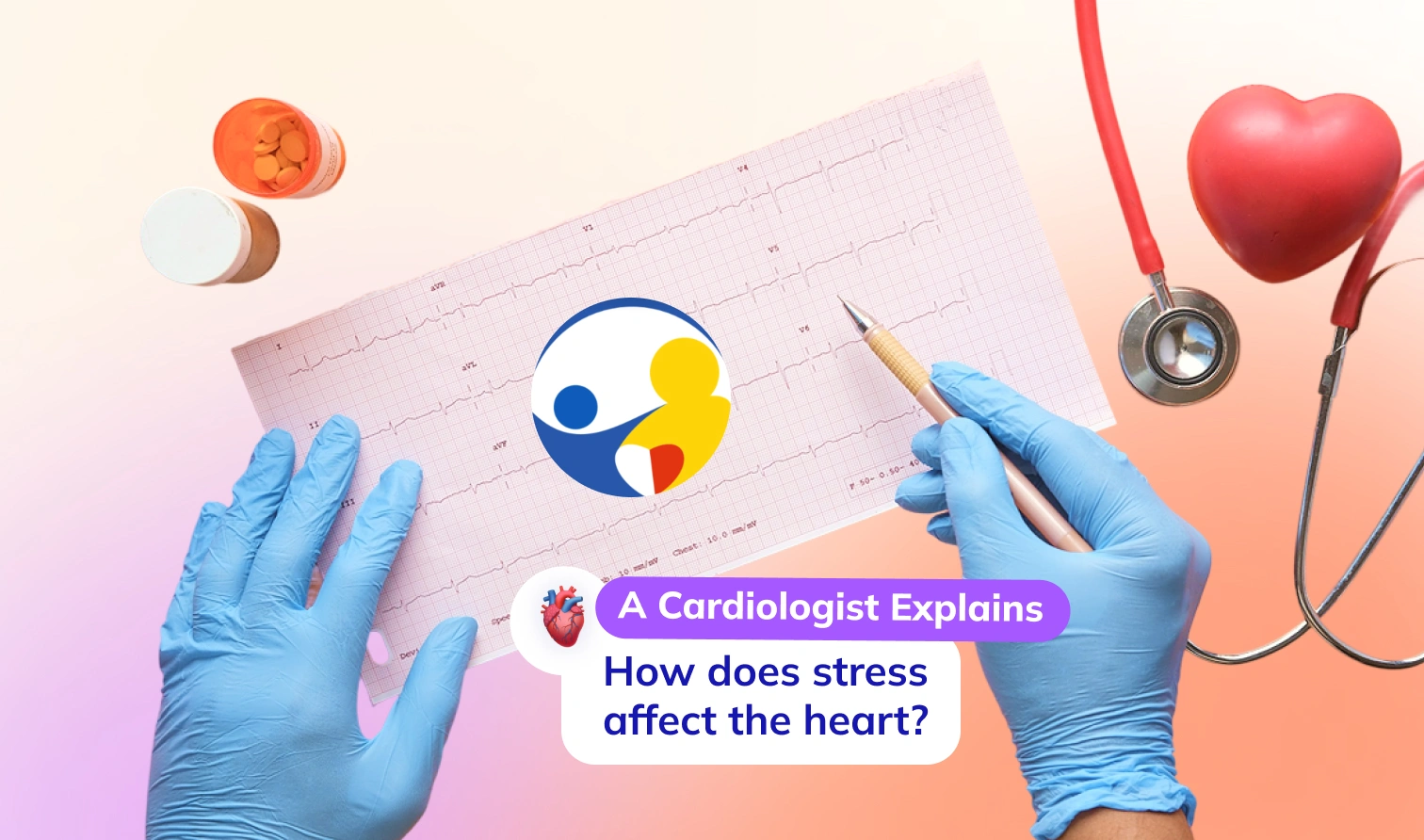How Does Stress Affect the Heart? Explained by a Cardiologist from “Moja Rodina” Clinic
Stress is a natural response of the body to various external or internal factors that can cause tension or anxiety. In the short term, stress can be beneficial by mobilizing our forces to quickly react to threats.
However, prolonged stress can cause serious harm to health, especially to the cardiovascular system. How exactly does stress affect the heart, and why is it important to pay attention to your psycho-emotional state? Let’s explore this in the article.
Stress and the Heart: What Happens in the Body?
When we experience stress, the body triggers the so-called “fight or flight” response. This process involves the release of stress hormones — adrenaline and cortisol — which increase heart rate, blood pressure, and blood glucose levels. These are evolutionary mechanisms that help the body act quickly in dangerous situations.
However, when stress becomes chronic, these mechanisms begin to harm heart health.
How Does Stress Affect the Heart?
- Increased Blood Pressure
Chronic stress causes a constant increase in adrenaline levels, forcing the heart to work harder. This leads to high blood pressure, which strains the heart and blood vessels, increasing the risk of strokes, heart attacks, and other cardiovascular diseases. - Increased Heart Rate (Tachycardia)
During stressful situations, heart rate may rise, putting additional strain on the heart. This is especially dangerous for people with existing heart conditions like ischemic heart disease or arrhythmia. - Development of Heart Arrhythmias
Chronic stress promotes disturbances in heart rhythm. These may range from mild irregularities to serious conditions increasing the risk of heart attacks. - Negative Impact on Blood Vessels
Stress may cause inflammation in the blood vessel walls, contributing to atherosclerotic plaque formation and vessel narrowing. This can reduce blood flow and increase the risk of thrombosis. - Increased Levels of Cholesterol and Glucose
Prolonged stress triggers cortisol release, which raises blood glucose and cholesterol levels. These factors contribute to diabetes, obesity, and atherosclerosis — the main causes of heart disease.
Symptoms Indicating Stress-Related Heart Strain:
- Chest pain or discomfort
- Irregular heartbeat, rapid pulse
- Shortness of breath or heaviness in the chest
- Fatigue, weakness
- Shortness of breath, especially during physical activity
How to Reduce Stress Impact on the Heart?
- Physical Activity
Regular exercise helps reduce stress and lowers the risk of cardiovascular diseases. Even short walks outdoors can benefit the heart. - Relaxation Techniques
Yoga, meditation, breathing exercises effectively reduce stress, normalize heart function, and calm the nervous system. - Healthy Sleep
Lack of sleep and stress often go hand in hand. Regular, quality sleep is vital for heart health and stress reduction. - Balanced Nutrition
Healthy eating helps maintain normal cholesterol and blood pressure levels. It’s important to include more vegetables, fruits, fish, and reduce saturated fats and salt intake. - Psychological Support
If stress is overwhelming and you cannot cope alone, seek help from a psychologist or psychotherapist.
When to See a Cardiologist?
If you experience symptoms that may indicate stress affecting your heart (such as chest pain, tachycardia, shortness of breath), don’t delay a cardiology consultation. Early detection helps prevent serious complications and preserve your health.
Book a Consultation
Schedule an appointment with our cardiologist for professional help in managing stress and protecting your heart. ECG testing is also available at the clinic.
? Address: ul. 29 listopada 18a/4, Warsaw
? Phone: +48 729 855 896
? Website: www.klinikamojarodzina.pl







